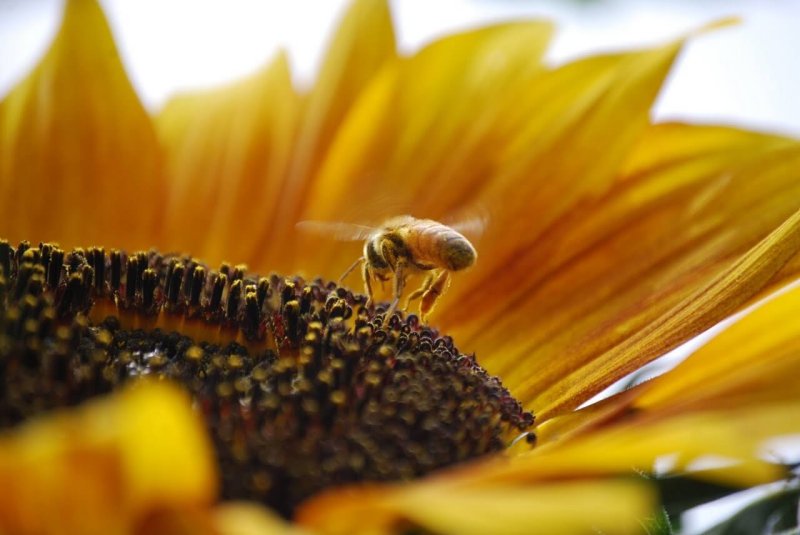Scientists in Argentina have trained honeybees to more effectively pollinate sunflowers — a method they believe can also be applied to increase pollination rates for other valuable crops in the future.
The team trained colonies of bees to focus on a desired crop in much the same way an experienced tracker trains a bloodhound to narrow in on its quarry. By introducing the bees to an artificially created compound designed to mimic the natural smell of sunflowers, they were able to drive the bees to increase pollination of the desired crop, which they detail in a study published [September 17] in the journal Current Biology.
By focusing the bees on a single target, researchers saw seed production increase between 29% and 57%. For valuable pollinator-dependent crops such as sunflowers, that’s a welcome productivity boost.
“We developed a simple synthetic odorant mixture that bees generalized (confused) with the natural floral scent of the sunflower, an economically important and highly pollinator-dependent crop in those cases in which hybrid seed production are required,” said Walter Farina, a professor in the department of biodiversity and experimental biology at the University of Buenos Aires in Argentina, in an email interview. “This procedure increased honeybee foraging activity in the sunflower crop fields studied and also improved significantly the yields of the treated plots.”































